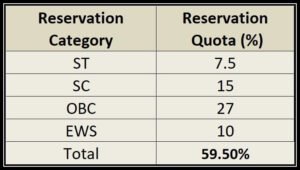Educational Qualification A Valid Ground For Classification Between Persons Of Same Class In Matters Of Promotion
Case: Chandan Banerjee & Ors v. Krishna Prosad Ghosh & Ors.
Coram: Justices DY Chandrachud, Vikram Nath and Hima Kohli
Case No: Civil Appeal No 5582 of 2021
Court Observation: “The appellants have sought to lay emphasis on the fact that the decision in Trilokinath Khosa (supra) was dependent on the existence of two different sources of recruitment, while in the present case there is a single source of recruitment. To read the decision in this light is to miss the wood for the trees. In Trilokinath Khosa (supra), the Court had adverted to the well-established principle that once direct recruits and promotees are integrated into a common pool, they cannot be treated differently based on the ‘source of recruitment’. This however does not imply that they cannot be classified on other reasonable grounds. Thus, whether there are two different streams of recruitment, or a single source of recruitment merged into a common pool, the classification that was upheld in Trilokinath Khosa (supra) was based on the educational qualification which was linked to the purpose of enhancing administrative efficiency in the organization. We are unable to agree with the submission of the appellants that the decision in Trilokinath Khosa (supra) is not applicable in the present case.”
“The impugned circular indicates that these supernumerary posts were created for removal of stagnation amongst SAEs. Although that may be the stated goal of the impugned circular, KMC has urged before this Court that the distinction in education qualification for promotion has been made for the purpose of enhancing administrative efficiency. It cannot be denied that SAEs once promoted to the post of an AE in these supernumerary posts would be performing the task and functions of an AE. Thus, it is not merely a change in the designation of an SAE to an AE, but involves an increase in workload, supervisory functions, and performance of the regular functions of an AE. Since that is the case, we do not find any reason why the rationale underlying the need for higher degree-holders in the AE cadre through regular promotion would not be applicable in the case of supernumerary posts.”
“While creating supernumerary posts, KMC has not completely restricted the promotional avenues of diploma-holder SAEs who have stagnated in their service. It has provided adequate opportunity to them to advance in their career, although on different terms and conditions. Thus, the promotional policy of KMC for supernumerary posts is not irrational or arbitrary or to the detriment of diploma holder SAEs. In matters of public policy and public employment, the legislature or its delegate must be given sufficient room to decide the quality of individuals it seeks to employ as against different positions. As long as these decisions are not arbitrary, this Court must refrain from interfering in the policy domain,”
[doc id=9841]
Previous Posts
Change Of Date Of Birth In-Service Records Cannot Be Claimed As Of Right; Can Be Rejected For Delay & Latches: Supreme Court Download Judgement
Keywords
Educational Qualification, Classification, Promotion, Supreme Court




